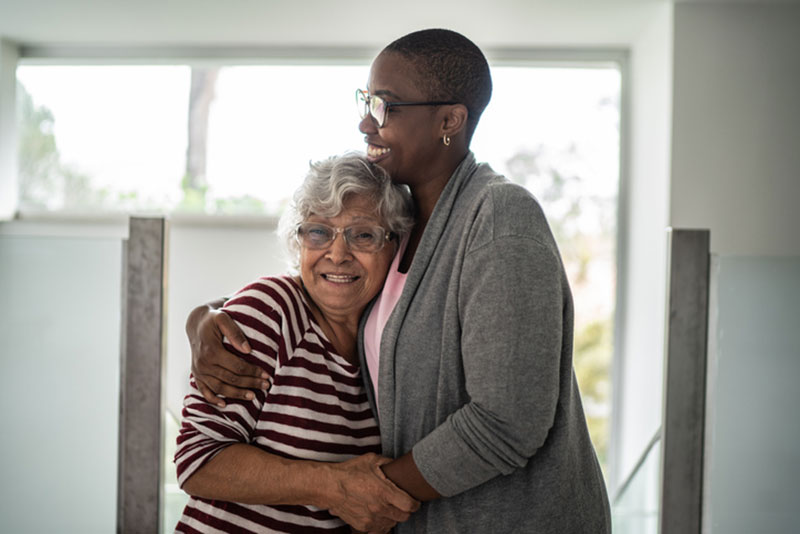
Understanding anxiety in the elderly and other emotional challenges older loved ones face is important for family caregivers.
Aging is accompanied by a host of common changes. Shifts in eating and sleeping habits, memory, and interests in certain activities are frequently linked to the natural process of growing older. Yet, these very changes can sometimes be signs of a frequently overlooked and untreated condition in older adults: anxiety.
What Other Signs Could Point to Anxiety in the Elderly?
In addition to the red flags noted above, an older adult with anxiety may experience:
- A racing heart
- Obsessive thinking
- Nightmares
- Extreme overreactions
- The need for repetition in certain activities, such as handwashing
- Excessive sweating
- Nausea
- Trembling
- And more
What Causes Anxiety in the Elderly?
There are a number of contributing factors for anxiety in older adults, including:
- Feeling as though they’ve lost their freedom
- Loss of a loved one
- Side effects from medications
- Problems with mobility
- A chronic health condition
- Trauma from their past
- And more
What Are the Most Common Types of Anxiety?
In many cases, a doctor will diagnose an individual with generalized anxiety disorder, which covers a broad array of types of anxiety. In addition, there are three specific forms of anxiety that may be diagnosed:
- Obsessive-compulsive disorder: Also known as OCD, this condition causes the individual to go through certain rituals, often repeatedly, to manage compulsions or unwanted thoughts. These behaviors, such as washing hands over and over again or checking to be sure the door is locked multiple times, provide a feeling of control in an otherwise uncontrollable situation.
- Phobias: Phobias are fears of a very specific situation or object. The person may, for example, feel especially fearful of dental or doctor visits, spiders, being alone, thunderstorms, the dark, etc.
- Social anxiety disorder: Social anxiety disorder occurs when the individual experiences extreme nervousness or self-consciousness in social situations. This can be debilitating, leading the person to avoid socializing altogether, which is harmful both for their physical and emotional wellbeing.
How Can You Help an Older Adult With Anxiety?
The good news is that there are effective treatment options available for individuals with anxiety, ranging from medications to counseling to changes in lifestyle. To begin with, schedule an appointment with the doctor for a diagnosis and recommendations. Additionally, you can:
- Talk with the person frequently, allowing them to share their feelings and thoughts. Simply listening without judgment can help instill a sense of calm and self-worth in your loved one.
- Encourage better sleeping habits if needed. A recent research study conducted by the University of California, Berkeley revealed that insufficient sleep can elevate anxiety up to 30%.
- Recommend avoiding nicotine, alcohol, caffeine, along with other stimulants, all of which can heighten anxiety.
How Home Care Can Help
Compassionate Nursing Services can help ease anxiety for older adults in a number of ways. Our caregivers are fantastic companions for conversations, calming activities, and exercise. We can also plan and prepare healthy meals, provide medication reminders, offer transportation to medical or therapy appointments, and more.
Our top-rated in-home care services are available in Oakville, Des Peres, Town and Country, and surrounding communities. Contact us online or give us a call any time at 314-432-4312 for more information on how we can help someone you love.
